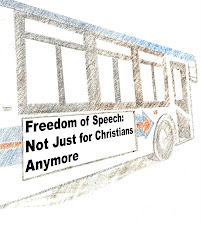
A while back, I was asked the question - "I perceive atheists act (behavior wise) like religious people, in the sense they belong to something. And it feels somehow exclusive. Now, tell me objectively, have you noticed that?"It may be the area of the country I live in but, until recently, I never even met a person who I knew was an atheist outside of my own family. When you might go a lifetime without meeting someone in person who admits they are an atheist, it's kind of hard to feel a sense of atheist community.
I'll admit that I was excited to meet him because it's really nice to be able to talk openly and not have to navigate a conversation laden with religious references that one must pretend to also believe to avoid offending anyone. But I get that kind of conversation with my liberal, non-atheist friends, too.
All atheists really have in common is their absence of belief in God. Beyond that, there's not too much held in common. Most atheists are upset by religious laws, religion based discrimination, and religious practices that infringe on human rights
but then again most non-atheists are, too.What I see among online atheists (the only type I interact with regularly) is more a type of understanding of certain situations atheists in America encounter rather than a sense of community. When I relate my experiences with anti-atheist bigotry to my liberal religious friends they express shock and sometimes disbelief but most other atheists I've conversed with have had similar experiences. They can relate to the problems of biting your tongue to keep your job or having friends or family disown you if you are "outed" as atheists. They can relate to the vandalism and the death threats, especially atheist writers. Even if they've never had the specific action performed against them, generally they've experienced something in the same spirit.
While this might not create a sense of community it does tend to inspire activism. When I see a negative behavior among people as just my own experience, I tend to just take the indignity or abuse without raising a fuss. But when I see that the behavior isn't against just me, and is deemed acceptable to my society, it outrages me.
I think that is the something some atheists do belong to - a desire for positive change inspired by shared negative experience. But it is by no means exclusive.
You don't have to be an atheist to be part of it.
Just speak out against unjust religious legislation - anti-gay laws and anti-science education laws (religiously motivated legislation to alter the teaching of evolution, geology, history, and/or environmental sciences in public schools) that are all in the legislative process right now. Speak out against religious discrimination against non-Christians in the workplace. Object when people slander homosexuals. Protest religiously motivated discriminatory child custody practices. Protest the medical and educational neglect of children. Any of these will make you a part of it.

















